Posies - Interview
by John Clarkson
published: 6 / 9 / 2010
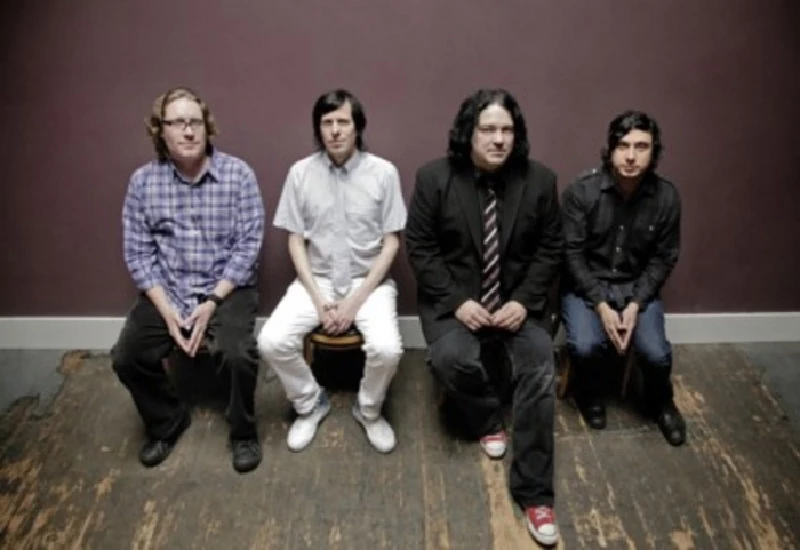
intro
The Posies have recently returned with their first album in four years, the sour-sweet ‘Blood/Candy’. Singer and guitarist Jon Auer talks to John Clarkson about it and his and his band mate and co-songwriter Ken Stringfellow’s successful long musical partnership of over twenty years
The American group, the Posies, have recently returned after an absence of four years from the studio with their eighth album, ‘Blood/Candy’. Like most of their albums, it has a lavish, upbeat sound, but they have combined this with provocative and spiky lyrics. The wide themes of ‘Blood/Candy’ include relationship difficulties, mental illness, homelessness and architecture. The group originally planned ‘Blood/Candy’ as a return to the power pop roots of albums as Dear 23’ (1990) and their classic and much acclaimed third record, ‘Frosting on the Beater’ (1993). There is an element of that on ‘Blood/Candy’, but other songs incorporate other genres such as psychedelia, punk, jazz and prog and maths rock. The Posies were formed in 1987 by vocalists and guitarists Jon Auer and Ken Stringfellow in their native Bellingham, ninety miles outside Seattle, in 1987. They broke up briefly in 1998, but were back together by 2000 and, after having had various line-ups in their early years, have since 2001 also consisted of Darius Minwalla on bass guitar and Matt Harries on drums. As well as fronting the Posies, both Auer and Stringfellow have worked as producers and also played in a variety of other solo and band projects. Auer played guitar and Stringfellow the bass in the seminal power pop group Big Star from 1993 until March of this year when its front man and songwriter, Alex Chilton, died of a heart attack aged 59. Pennyblackmusic spoke to Jon Auer shortly before the beginning of a two month European tour and the release of ‘Blood/Candy’. PB: Why did you call this album, ‘Blood/Candy’? It seems like a lot of your albums to be a combination of often sharp and provocative lyrics and melodic hooks. Was it a reflection on that? JA: Yes. One might assume that it is just very happy, bouncy type of music, but there are some pretty extreme and darker things being talked about in the lyrics. There is this almost black or dark humour. I think the cool thing about this title is that it has maybe allowed people to pay attention to and maybe focus on that factor, to realise that there is this tension and disquiet beneath the surface. I am glad that people are picking up on it. PB: You went in to record this album initially with the intention of returning to your roots in guitar pop and using lots of harmonies. There is that there , but it throws in so many elements and other things as well such as psychedelia, punk, jazz and prog rock. Do you think that you could return to your roots even if you wanted to? You have twenty years more experience and are much more experienced musicians. JA: I think when you grow it becomes hard to ungrow. It is like a bell that you can’t unring. Once it has occurred there is no real going back to the way that you were. To me that would be just a kind of let down anyway. It is just not really the point of life (Laughs). The point is to evolve, right? Hopefully that is what you are trying to do personally and professionally and artistically. Otherwise if you’re not, then you’re probably dead. With regard to that thought of returning to our roots, I think that what we do whatever we feel like doing at the time. It is just that sometimes we think that we know what we are going to be doing and then something else happens. That is also par for the course. PB: You spent much of 2008 doing full album shows of ‘Frosting on the Beater’? How much do you think that idea of returning to your roots came from that? JA: None of that really. We just wanted to do something that was simple to do live. There is a lot of complexity in what we do in the studio. Some of our earlier stuff is pretty simple, but over the years we have done a lot of things to make it harder and harder on ourselves to perform these records live (Laughs). We have got this habit of doing the exact opposite to what we intended. I guess we are kind of reactionary really. We are just like little kids in that sense. They are told not eat that cookie in that cookie jar and of course they end up doing the exact opposite . It is funny how we do that to ourselves. We are like “Wow!” What corner have we painted ourselves into now?”(Laughs). It was the same with this album. It became more and more complex. At the same time as that though, just because we want to experiment and grow and evolve, it does not mean that we won’t use a song which we think works because it is not the most experimental thing we have ever done. If it is a good song and we like it, we are not just going to throw it away. Sometimes I think that you can go too try too hard to be eclectic. We are not just going to reject something that maybe sounds like something we have done before just because we want to be different. I think that we stuck a good balance on ‘Blood/Candy’ because there are things like ‘Accidental Architecture’ and ‘Licenses to Hide’ which move us forward, but there is other stuff like ‘So Caroline’ which sounds like what a lot of people might expect from the Posies . Depending on what you like about the Posies that may or may not be a bad thing. PB: Both the last Posies album and in fact the Big Star record ‘In Space’ were written in the studio. For this album you decided to write all the songs in advance. Why did you decide to do this? Was this just keeping things fresh for yourself? JA: It was a complete reaction to the last experience. I am glad that we did what we did with ‘Every Kind of Light’, but I don’t want to make a record again like that. I personally believe that a crucial part of the equation of creativity is time and, sure, if you are forced to, you can come up with something if you give yourselves only a limited amount of time. We only had a certain amount of time with ‘Every Kind of Light’, but I think that it is good to reflect and then maybe have some time to revise as a result of that reflection and that was one of the things that we didn’t have on ‘Every Kind of Light’ which kind of bugged me. There are some things on there which I really love and I think that it a good recor , but there are a couple of songs which I wouldn’t put on there if I actually had the time to do something different. It is not something that I would want to do again. It really was a once in a lifetime experience. PB: How did the writing of this album work then? You live in Seattle and Ken in France. You’re both not just in different countries but different continents. Did you go and lock yourself away together to come up with an initial batch of songs before you came to Spain or were ideas just bouncing back and forth on e-mail first of all? JA: We did demos. It is funny. A lot gets made mention of the fact that we don’t live in the same country anymore. In fact Matt lives in Canada, so we’re four guys on three different countries. If this was the 1800s, I could maybe understand that people are so surprised by it, but it is so easy in this world to stay in touch. In fact I think we actually stay in touch more now that we are not in the same city all together. Maybe now that we are not all around each other we don’t take it all for granted, but all it really requires is that once in a while you plan some time together and then once you have that time you use it to the fullest. We did the initial songs on e-mail, but then we did get together for a serious seven day session before we made the record. We woodshedded then like you would not believe. I have to stress again the complexity of some of these songs. These were not short rehearsals where they were banged out in a couple of hours. A lot of detail went into them, but that’s really where things took shape. The Posies have always usually been Ken and I coming to each other with songs individually and then we shape them together. PB: You’re both singers. How do you decide who is going to do the singing? Is it just the person who has come up with the original idea? JA: We keep it half and half. We have kept to the same agreement for our whole career. We started when I was sixteen and Ken was seventeen and we decided that we would have an equal number of songs on each record. We figured that was the only way we could make it something in which we both would get what we wanted out of it and also avoid any feeling of maybe being short changed. I think that it is actually a pretty unique relationship in that respect. There are bands such as XTC where one guy writes most of the songs and the other guy writes some of the songs. Andy Partridge wrote most of the songs and Colin Moulding had some great songs, but he would have maybe two or three maybe on the record and Andy would have the rest. It is straight up half and half with Ken and I. PB: ’Every Kind of Light’ was recorded by all four of you and was produced by Darius. This one was produced by you and Ken. Where did Darius and Matt slot into things? When did they come on board this time? JA: You mean when they weren’t at the beach? I’m just kidding. They really got into things when they got to that rehearsal I talked about. That is really when they came into the fold. We didn’t jam these out in the studio. We figured them out and arranged them before we got there and then we added to those arrangements. We had a pretty solid blueprint of where we wanted to go when we got into the studio this time. They were introduced to the songs right before we recorded them basically. They had the demos, but some of the demos were just like a guitar and vocal. We purposefully didn’t do those kind of demos for the most part where one of us ended up recording pretty much everything. We wanted a little room when we got together and put our stamp on it together. PB: Why did you decide to go to Spain to do the actual recording of the album? JA: It was cheaper than Brazil (Laughs). Seriously though, Spain is a place that we had a long history with. I have gone to Spain at least twice, three times a year since 1993. With the Posies, we go there all the time and play there regularly. We have always connected with the Spanish and they have connected with us. The studio we went to, the studio Paco Loco, is run by this amazing character from Spain and this great engineer/musician/producer, who again is called Paco Laco, and has this place where you can live at and eat three really good meals a day and drink bottles of wine after you get done with the sessions. It was totally ideal for us to go and a great way for us to go and record and have an experience that we hadn’t gone through before. PB: The album was recorded fairly quickly in eleven days, wasn’t it? JA: Well, it was (Laughs), but that is a little misleading. As the songs became so complex, the actual post-production process was ridiculously time-consuming. We severely under planned the amount of time for that. We got everything done that we could get done in Spain and then it came down to editing and adding layers to the layers to that. That was such an intensive process. I think in the month of June I had one actual day off and the rest of them were pretty much twelve hour days. It was getting the strings done for the record and stuff like that which took the time. We had by the end eighteen tracks of strings, for example. It just tooks more time than we could have predicted. The next go around we are going to plan more time than we need and I am going to add twenty percent to that at least. PB: How are you going to reproduce all this live? JA: We’re not (Laughs). That is the honest answer. We’re going to do what we can. The songs do sound good with just the four of us as well. We do make a lot of noise between us. PB: You have guest appearances on vocals on the album from the former Stranglers front man Hugh Cornwell, Kay Hanley from Letters to Cleo and Lisa Lobsinger from Broken Social Scene. They all appear right at the beginning of that album and on the first three tracks. Why did you do that? JA: That’s a complete coincidence. It is just the way that we wanted the album to be ordered. We couldn’t change after a certain point and it just so happened that those were the songs that ended up having the guest. It looks kind of odd. I thought that it would be nice to break them up, just for the sake of not having them all crammed together in one little spot, but it is just the way it turned out. PB: You and Ken have been playing together for over twenty years. You split up in 1998, but it was never really much of a split because you continued to play together with Big Star throughout that period and you were back together for a tour in 2000. Do you think that you have lasted together so long as a song writing partnership because both of you are involved in other projects and there is not this pressure on you to write, tour and write again in a way that affects other bands? JA: Absolutely. If we were putting all our energies into just the Posies, I am not sure that it would work. I think that it is totally essential to the success of this partnership that we have started to do other things and to express ourselves in other ways with other projects. It is unfair to put so much expectation on any one relationship in your life I think. We do this because want to, not because we have to anymore. There is a point when we got to the end of the Posies, the supposed end of the Posies in 1998, in which it did feel like a treadmill and like an obligation and what is the fun in that? Now we just do it when we feel like it. We do have other things going on and those things actually contribute to what we do with the Posies as well. They rub off on you. It just makes things stronger all around. PB: Last few questions. You and Ken have been members of Big Star for seventeen years. Alex Chilton died in March. Jody Stephens has said that he enjoyed playing with you both and would like to continue to do so. He has also said that he’d try to find a way forward with Big Star. Have you come any nearer to making a decision how and where you go next with the band? JA: I would never go as far as saying that we are looking for a way forward with Big Star. There is no way that we will ever be Big Star again and Jody has also said that. Ken and I and I are hyper protective of the Big Star legacy. We don’t want to do anything to cheapen it or make it less, but the thing is that we do really enjoy playing with each other. There is some serious chemistry between the three of us and there is some serious history now. I think that the only way to do it is maybe every once in a while do some kind of tribute show and find people who want to step in and help us sing the songs. We have done a couple of those already as they were originally booked as Big Star shows before Alex died. We figured that it was a way to kind of pay tribute to him and they both ended up being far more than what I thought they would be. They were actually really good and people really enjoyed them. It wasn’t just like people were trying to hold onto the past or something. It was really a kind of celebration. I think that to do that you would only be able to do that every once in a while and that is the only way that I can see carrying on that music. I have talked to Jody and said that maybe we should do something new, just go out and have fun really and do something new, but I don’t want to sully the Big Star name either. It’s a fine line though. I am not sure yet. PB: That partnership with Big Star grew out of just one gig at Columbia University, didn’t it? JA: It really did and it was a very organic thing. It didn’t happen a lot or very often, but when it did it was great and it felt right. After seventeen years of doing it, it is funny but in some ways we felt like we just getting going. There was a show that we did in Brooklyn last year and also a show at the Shepherd’s Bush Empire the year before that and also Hyde Park and they were great shows. Of course the legend of Big Star has only grown so more since we started playing with them and more people have become aware of them. PB: If you don’t include the ‘Live in Columbia’ album’ from 1993, it took a long time for you to record the ‘In Space’ album with them. JA: It is a Big Star album in name for sure, but I would never put ‘In Space’ in with the other Big Star records. It is not the same band and not from the same place in time, but I guess all those records were made at a different place in time with different people and they are all very different from one another. It totally fits in with the concept of Big Star though. If you pick ‘#1 Record’ and then go to ‘Radio City’ they are very different from one another and then if you go from ‘Radio City’ to ‘Sister Lovers’ it is a quantum leap. You wouldn’t even know that it was the same band, which proves that sometimes a band is a name and what you associate with that name really can be anything under that moniker. I am really happy that we got to do it though. It was a great experience. To get to be in Ardent Studios where all those records were made and to make a record there, there was no way that I could have passed up on that opportunity. PB: What are you working on at the moment beyond the Posies? JA: I am putting together another solo record. I put out a solo record called ‘Songs from the Year of Our Demise’ in 2006 which I was very proud of and I did a lot of touring all around the world with it. I got a lot of great reaction off it, so I am working on that to follow up this round of Posies touring. Hopefully that will be out at the end of 2011, Other than that I produce a ton of records and I am just trying to finish off a couple of things before we hit the road (, so the bands don’t kill me (Laughs). PB: You’re as busy and prolific as ever then really? JA: Yeah, I got back from Singapore about five days ago and I am always travelling and going some place, always doing something. There was actually a point when I didn’t do a whole lot for a couple of years and I wasn’t really that happy. I wasn’t creating anything for a while and then I realised that was one of the things that makes me the happiest. I just want to do as much as I can now before I can’t do things anymore. That is really what it comes down to. PB: Thank you.
Band Links:-
http://theposies.net/https://www.facebook.com/theposies
https://twitter.com/theposies
https://www.instagram.com/theposies/
https://www.youtube.com/user/ThePosiesVEVO/
https://plus.google.com/103796823824205400355
Picture Gallery:-
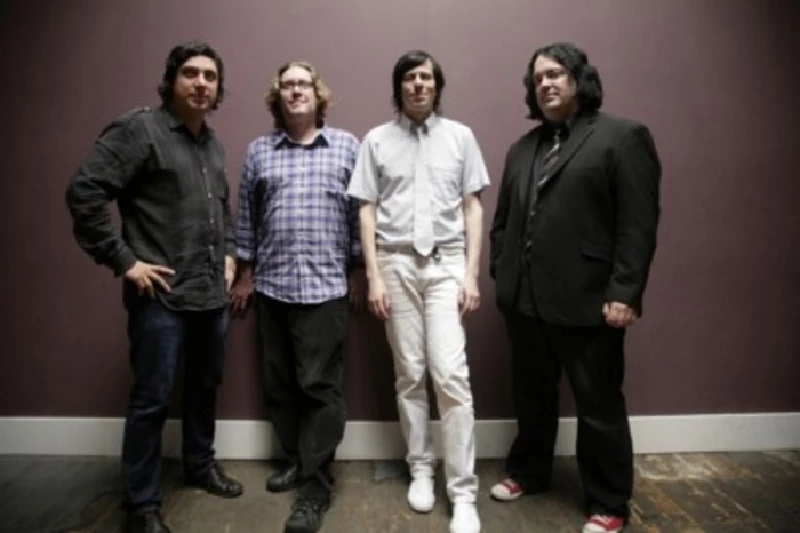
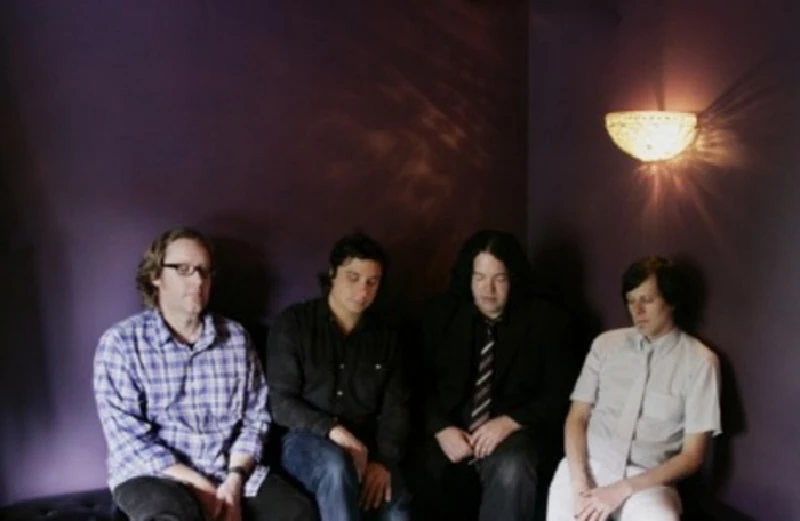
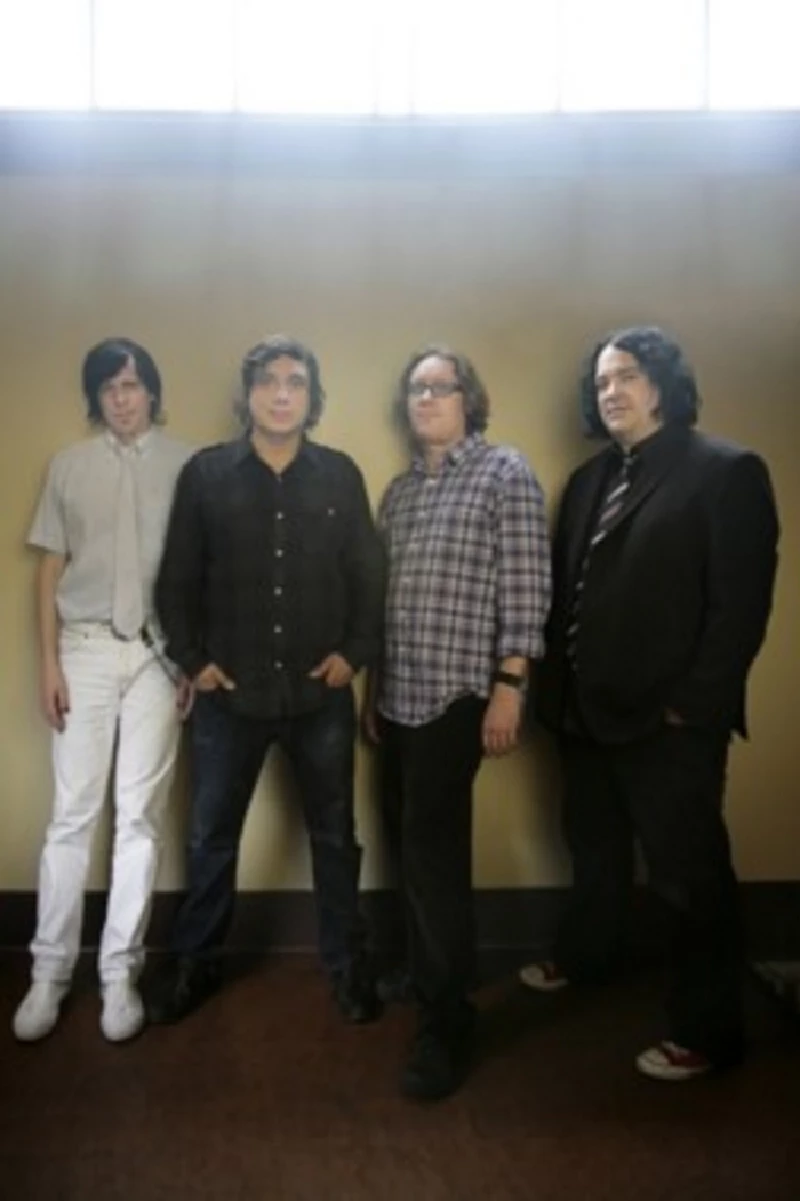
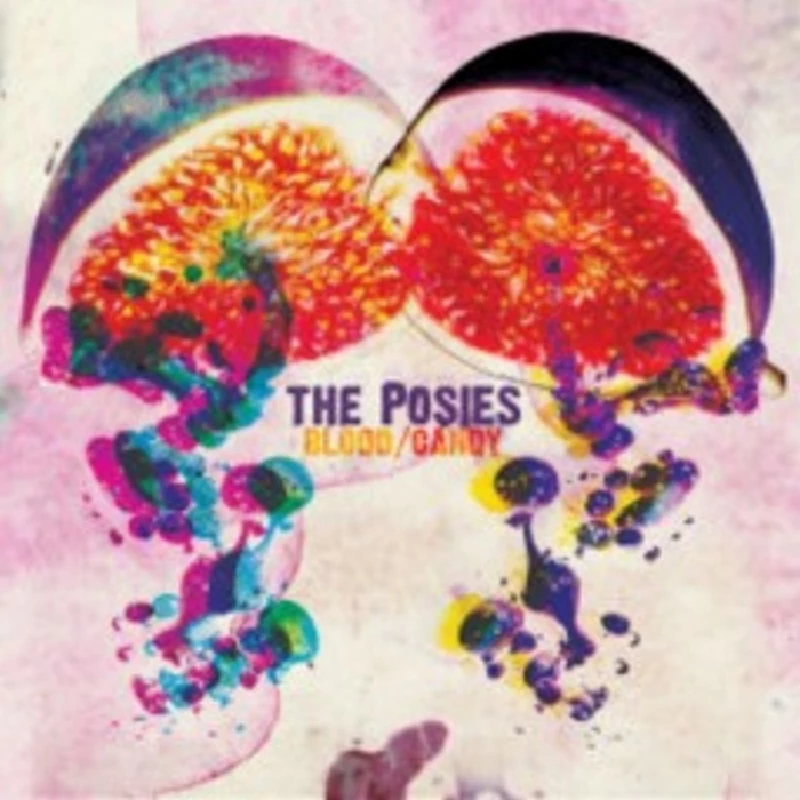
live reviews |
|
Hug and Pint, Glasgow, 28/10/2016 |
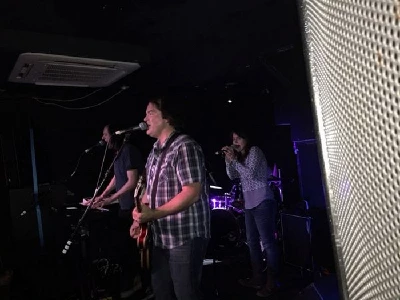
|
| Tony Gaughan watches American power pop act the Posies play an exceptional set at the tiny Hug and Pint and their first Glasgow gig in eleven years |
features |
|
At Least At Last (2002) |
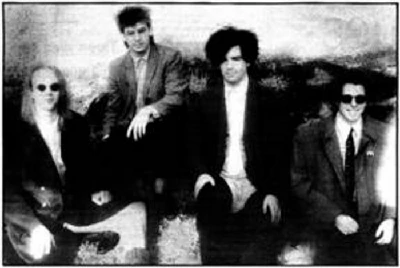
|
| Although The Posies were together for more than 12 years, their less than prolific output during this period, just 5 studio albums, doesn’t make them obvious candidates for the retrospective box set t |
soundcloud
reviews |
|
Solid States (2016) |
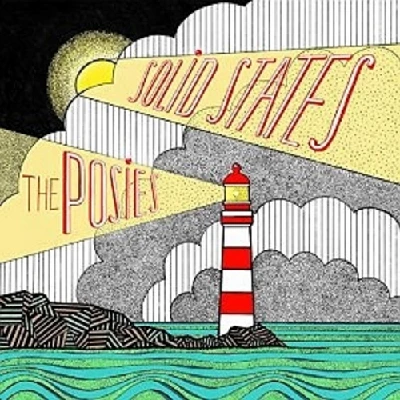
|
| Instantly infectious and likeable power pop on eighth album from the Posies, which has been recorded as a tribute to long term drummer Darius Minwalla who died last year |
most viewed articles
current edition
Tossing Seed - InterviewMotorcycle Boy - Interview
Last of the Lovely Days - Interview
Lemonheads - O2 Ritz, Manchester, 16/8/2025
Waterboys - Roundhouse, London, 1/6/2025
Cary Baker - Down on the Corner: Adventures in Busking and Street Music
Robert Forster - Interview
Belouis Some - Video Vault
Brian Wilson - 1942-2025
Morrissey - Photoscapes
previous editions
Flip Side - Raging PagesBob Mould - Brooklyn Bowl, O2 Academy, London, 11/2/2016
Bill Hicks - Profile
Stereogram Revue - Voodoo Rooms, Edinburgh, 2/12.2015
Dave Greenfield - 1949-2020
That Petrol Emotion - That Petrol Emotion, Town and Country Club, London, 1988
Miscellaneous - Minehead, Somerset, 8/5/2009...10/5/2009
John Clarkson - A Life in Music
School - Interview
Ain't That Always The Way - Alan Horne After The Sound of Young Scotland 2
most viewed reviews
current edition
Liarbilitys - VandalheartKirk Adams and Ed Woltil - Eat The Sunshine, Drink The Starshine
Silver Biplanes - Coming Up For Air
Big Flame - Peel Sessions 84-86
Suzie Ungerleider - Among The Evergreens
Bruce Dickinson - More Balls to Picasso
Wolf Alice - The Clearing
Good Charlotte - Motel du Cap
Rupert Wates - Father to the Man
Phew, Erika Kobayashi,, Dieter Moebius - Radium Girls
Pennyblackmusic Regular Contributors
Adrian Janes
Amanda J. Window
Andrew Twambley
Anthony Dhanendran
Benjamin Howarth
Cila Warncke
Daniel Cressey
Darren Aston
Dastardly
Dave Goodwin
Denzil Watson
Dominic B. Simpson
Eoghan Lyng
Fiona Hutchings
Harry Sherriff
Helen Tipping
Jamie Rowland
John Clarkson
Julie Cruickshank
Kimberly Bright
Lisa Torem
Maarten Schiethart